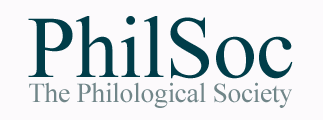The lecture will be given at University College London, Institute of Advanced Studies Common Ground (G11), Ground Floor, South Wing.
Please note that all ordinary meetings commence at 4:15pm. Members are welcome to come for tea at 3:45 pm.
In this talk I will be introducing the concept of lexical sociolinguistics: as a word, or a new meaning of a word, or a new soundshape of a word, enters the language, it always does so in the language of a speaker anchored in space, time, and in a social situation, talking to another person similarly sited. For a new word or pronunciation to spread, the innovation has to move from the initial group of similarly-sited speakers to speakers in other places and other social situations. Therefore, all word-change has the potential to become sociolinguistically marked – that is, to gain the quality of being associated with the kind of person who first or typically used it, or went on to use it – and it is sometimes possible to recover what these sociolinguistic qualities might have been. The research question is thus ‘what type of person used this word when, where, and in what kind of social situation’, and the sociolinguistic focus is on recovering historical social situations and affiliations. I will introduce the concept of communities of spatial practice, and I will demonstrate with some words that historical dictionaries usually omit, such as streetnames, brand-names and numbers.

